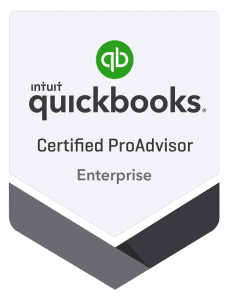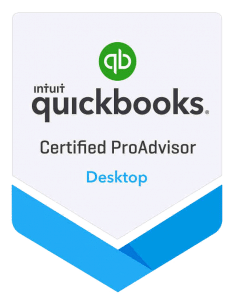Handling sales tax returns isn’t the most exciting part of running a business, but it’s one that has to be done right. Deadlines aren’t flexible, and the rules can feel overwhelming, especially if you’re trying to do it all while juggling other responsibilities. One slip-up can lead to late fees, notices you don’t understand, or spending more time than necessary fixing avoidable problems.
That’s why getting ahead of sales tax return deadlines is key. It’s not just about avoiding penalties. It also brings a bit more calm to your schedule when you’re not scrambling last minute. This article lays out the sales tax return process in Texas and gives you a few ways to make it less stressful. If you’ve ever felt confused about deadlines or unsure whether you’re doing it right, you’re not alone. Let’s break it down and make it simple.
Understanding Sales Tax Return Requirements in Texas
Texas requires businesses that make taxable sales to collect and report sales tax. If you’re responsible for filing, understanding when and how to do that is where it all starts. The state has a specific schedule for when returns are due, and that depends on how much sales tax you collect.
Here’s a quick rundown of the typical filing periods:
– Monthly: If your business collects a higher amount of sales tax, you’re likely required to file every month. These returns are usually due by the 20th of the following month.
– Quarterly: Many small businesses fall into this category. The deadlines are generally the 20th of the month that follows each calendar quarter.
– Yearly: This is for those who collect a very low amount in annual sales tax. Returns are usually due by January 20 of the following year.
It’s worth noting that even if you didn’t collect any sales tax during a reporting period, you still have to file a return, which trips up more business owners than you’d expect. The state wants that check-in, whether you owe them money or not.
Missing a sales tax return deadline in Texas can lead to late fees and interest charges. In some cases, the state might even estimate what they think you owe, which may not be in your favor. That’s why staying organized and knowing your deadlines makes a real difference.
Organizing Your Sales Tax Records
Staying on top of your paperwork can make sales tax return prep far less of a headache. If your sales records are messy or incomplete, filing your return becomes a guessing game. You don’t want to guess when it comes to state filings.
Here are a few practical ways to get your records in shape:
1. Track sales daily or weekly, not just at the end of the month or quarter. This spreads out the workload and helps prevent errors.
2. Keep digital and paper copies of invoices, receipts, and transaction summaries. Cloud storage or accounting software can come in handy here.
3. Label and categorize your sales so you know which are taxable and which aren’t. Mixing the two will complicate things when you’re trying to file.
4. Save all exemption certificates if you make tax-exempt sales. You could be asked to provide these later.
Using accounting software that syncs with your point-of-sale or invoicing system can also help. Some tools will even calculate your collected sales tax for each jurisdiction, which saves you time and lowers the chances of reporting the wrong amount.
One business owner we worked with used to throw all their receipts into a drawer and sort them out only when tax time came around. After missing a deadline and getting hit with a small penalty, they switched to weekly tracking and a cloud-based system. The difference it made was huge: quicker prep, fewer errors, and no more last-minute panic.
Cleaning up your record-keeping doesn’t need to take long, but it does require a routine. Once you have one in place, staying ready for the next sales tax return in Texas becomes a lot easier.
Strategies for Meeting Sales Tax Deadlines
Getting ahead of sales tax deadlines requires some planning, but it pays off. A well-thought-out strategy helps you manage due dates without the last-minute rush. Setting up a tax calendar is a great place to start. Whether you use a good-old paper calendar or a digital one with alert features, having a visual reminder of key dates can be helpful. Mark down the filing dates that match your business’s reporting schedule—monthly, quarterly, or annually—as discussed earlier.
Efficient preparation involves more than just knowing the deadlines. Build a routine that includes gathering and reviewing your sales records a couple of weeks before they’re due. Here are some steps you can take:
– Sort and review records weekly. Avoid a pile-up of paperwork that builds up over months. Handling records in smaller, manageable batches makes the process smoother.
– Set early internal deadlines. Aim to have everything ready a few days before the state deadline. This gives you room for final checks or last-minute fixes.
– Stay informed. Watch for changes in Texas sales tax laws that could impact your process.
Even with a plan, unexpected problems can still come up. A computer glitch or a key file going missing at the wrong time can delay things. That’s why it helps to be a little early with your prep. If you’re dealing with an issue you can’t fix on your own, the Texas Comptroller’s office is a good resource. You might also choose to bring in a professional to help move things forward.
Getting Professional Help
Sales tax return rules can get technical, even for experienced business owners. Staying on top of everything and filing correctly is a big task, especially when time is tight. That’s where professional help can make a difference.
A bookkeeping service can take the entire sales tax return process off your plate. These experts handle everything from tracking to filing so you don’t have to worry about falling behind.
Some of the ways a reliable service can support your business include:
1. Keeping your sales records complete and in order, making filing smoother.
2. Giving you updates when Texas law changes so you avoid surprises.
3. Helping you respond if the state sends a notice or has questions.
One small business owner we worked with used to scramble every quarter to meet the sales tax deadline. They were always rushing to find records and double-check the math. After hiring a professional, they not only met every deadline since, but also gained peace of mind knowing it was all handled correctly. Their stress dropped, and they had more time to focus on their growth.
Bringing in expert help doesn’t mean losing control of your books. It means sharing the load with someone who works in this space daily and knows what to expect. Professional support turns a stressful chore into a simple, streamlined task.
Simplifying Sales Tax Returns in Texas
Getting a handle on your sales tax returns can be easier than you think. With a few good habits, some planning, and the right kind of help, staying on schedule is completely doable.
You don’t need a complex plan. A calendar marked with key dates, tidy sales records, and support from a trusted expert can make all the difference. The more routine your process becomes, the more confident you’ll feel every time a deadline rolls around.
Sales tax filings don’t have to feel like looming threats. With the steps covered here, you can turn a recurring headache into a structured routine. When you’re on top of your records, ahead of deadlines, and open to getting help when needed, you spend less time worrying and more time running your business. Texas sales tax return season doesn’t have to be a scramble. With the right plan, it can just be one more item checked off your list.
Need some extra help with your sales tax return in Texas? Let Cloud Bookkeeping ease the process for you. Our team of experts is ready to guide you through every step, making sure your filing is accurate and on time. Trust us to handle the stress, so you can focus on growing your business.






